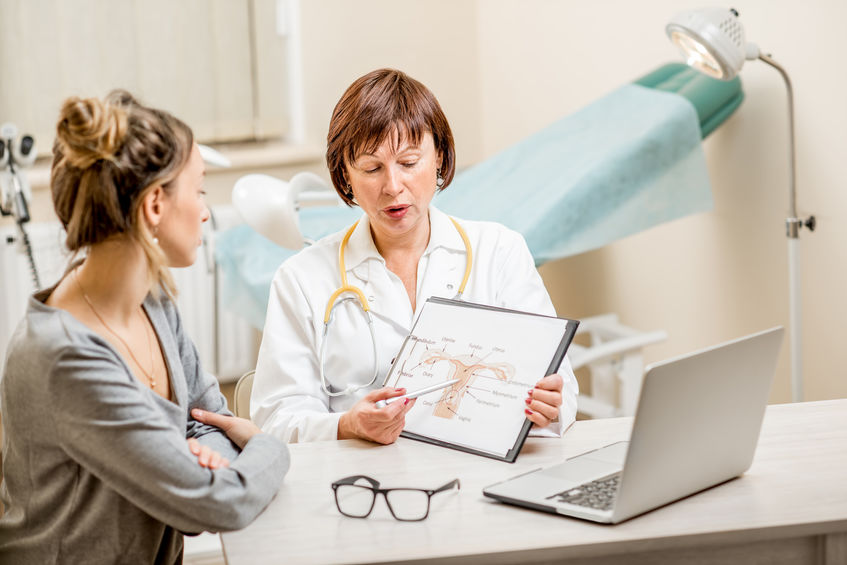What Does Endometriosis Do To The Body?
Endometriosis is a disease that affects the reproductive organs. With this disorder, the tissue that normally lines the uterus grows outside of the uterus. Typically, the lining of the uterus thickens and sheds if an egg isn’t fertilized. The lining leaves the body through the vaginal canal which is known as a period. When a person has endometriosis, the body still sheds the lining, but the blood and tissue get trapped inside the body. In response to the excess blood and material, the body produces small cysts, scar tissue, and adhesions that interfere with fertility.

What are the symptoms of endometriosis?
A person with endometriosis may be unaware of the disease. If a person has any of these symptoms or a combination of a few, consult a doctor immediately.
- Dysmenorrhea, or painful periods that last for several days
- Intermenstrual bleeding
- Fatigue, diarrhea, or nausea during the menstrual cycle
- Painful urination
One of the noticeable symptoms of endometriosis is acute pain. This is caused by the blood from tissues outside of the uterus leaking onto other organs in the body. Once the blood contacts other organs, the organs become inflamed, and pain occurs. Sometimes, these symptoms can be confused with other pelvic diseases like pelvic inflammatory disease (PID) or irritable bowel syndrome (IBS). Therefore, a thorough evaluation by a medical professional is needed. Endometriosis tends to affect women in the 30s and 40s without any previous pregnancies.
What treatments are available for endometriosis?
Doctors use a few different methods to treat endometriosis. The first is pain medication. Non-steroidal anti-inflammatory drugs (NSAIDs) may be able to offer temporary relief for endometriosis-related pelvic pain. The next option is hormone treatment. Hormone treatments give the body extra doses of estrogen, which stops menstrual bleeding. Patients can take hormone therapy in pill, patch, or vaginal ring form.
Doctors also opt for surgery in severe cases. Surgery can help those struggling to conceive by removing excess scar tissue and cysts. People with endometriosis can get pregnant, but conception may be difficult. Surgery will eliminate the endometrial growths that interfere with the natural conception process. Patients may also take fertility drugs to help improve the chances of conception.
Will a fertility specialist help?
Fertility specialists can help people struggling to conceive. These specialists identify any health problems that are affecting conception. A primary care provider can refer patients to a fertility specialist, so consult a healthcare provider for any fertility concerns.




